Intent – Why do we teach this?
History is all around us. The study of history ignites children’s curiosity about the past in Britain and the wider world. Through finding out about how and why the world, our country, culture and local community have developed over time, children understand how the past influences the present. History enables children to develop a context for their growing sense of identity and a chronological framework for their knowledge of significant events and people. What they learn through history can influence their decisions about personal choices, attitudes and values. At Huncote Primary School our intent, when teaching history, is to stimulate the children’s curiosity in order for them to develop their knowledge, skills and understanding.
Implementation – What do we teach? What does this look like?
We teach the National Curriculum, supported by a clear skills and knowledge progression. This ensures that skills and knowledge are built on year by year and sequenced appropriately to maximise learning for all children. It is important that the children develop progressive skills of a historian throughout their time at Forest and Sandridge and do not just learn a series of facts about the past. In History, pupils at Huncote Primary School, find evidence, weigh it up and reach their own conclusion. To do this successfully, as historians, they need to be able to research, interpret evidence, including primary and secondary sources, and have the necessary skills to argue for their point of view; skill that will help them in their adult life.
Impact – What will this look like?
By the time children leave Huncote Primary School they should have developed:
- A secure knowledge and understanding of people, events and contexts from the historical periods covered.
- The ability to think critically about history and communicate confidently in styles appropriate to a range of audiences.
- The ability to consistently support, evaluate and challenge their own and others’ views using detailed, appropriate and accurate historical evidence derived from a range of sources.
- The ability to think, reflect, debate, discuss and evaluate the past, forming and refining questions and lines of enquiry.
- A passion for history and an enthusiastic engagement in learning, which develops their sense of curiosity about the past and their understanding of how and why people interpret the past in different ways.
- A respect for historical evidence and the ability to make robust and critical use of it to support their explanations and judgements.
- A desire to embrace challenging activities, including opportunities to undertake high-quality research across a range of history topics.
History Progression
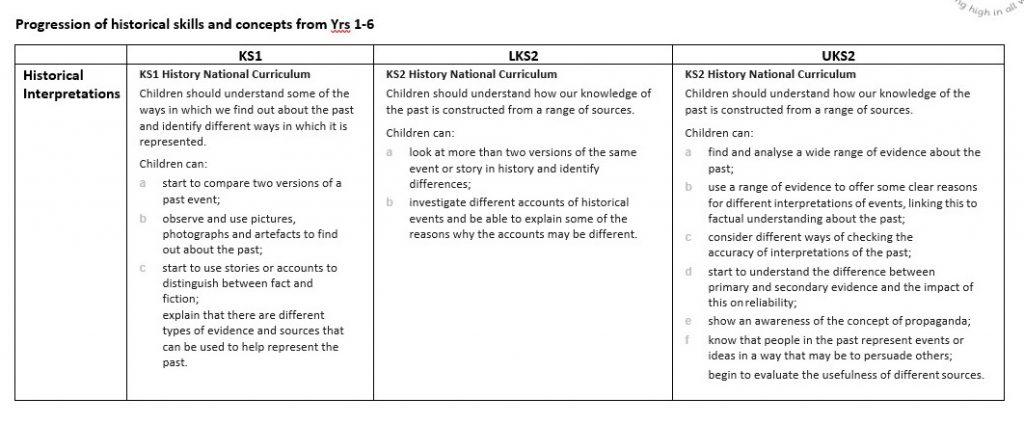
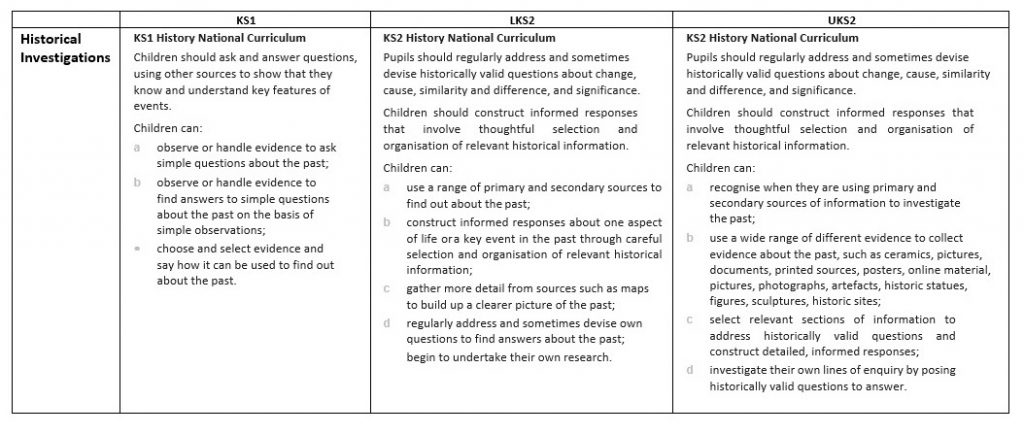
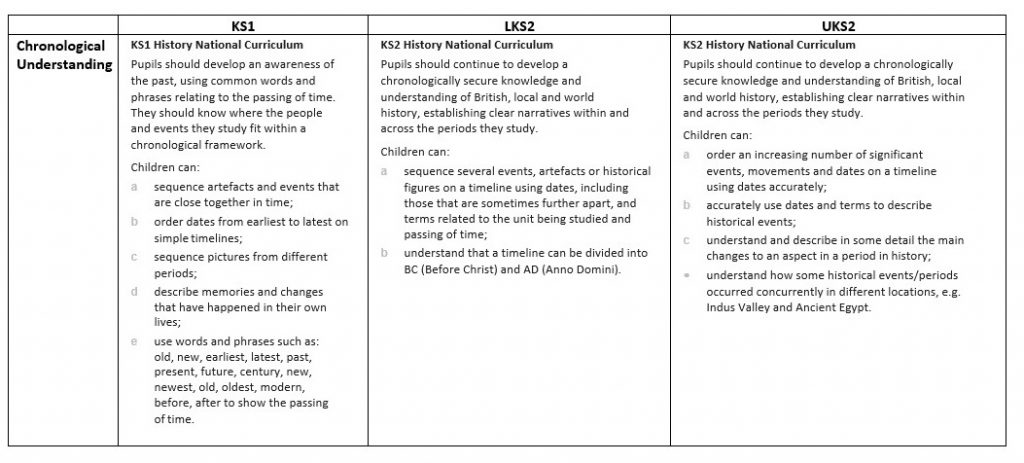
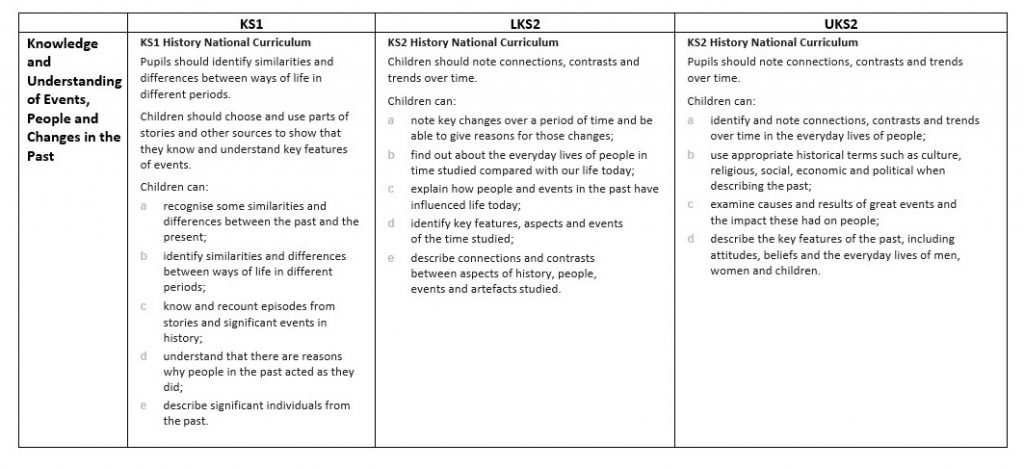

History Vocab
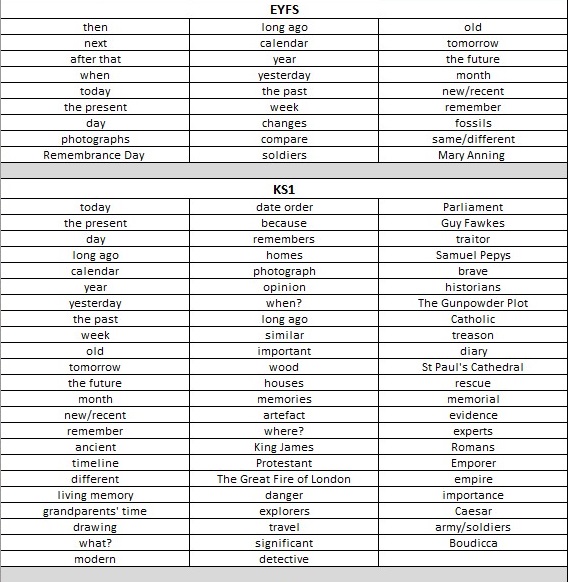

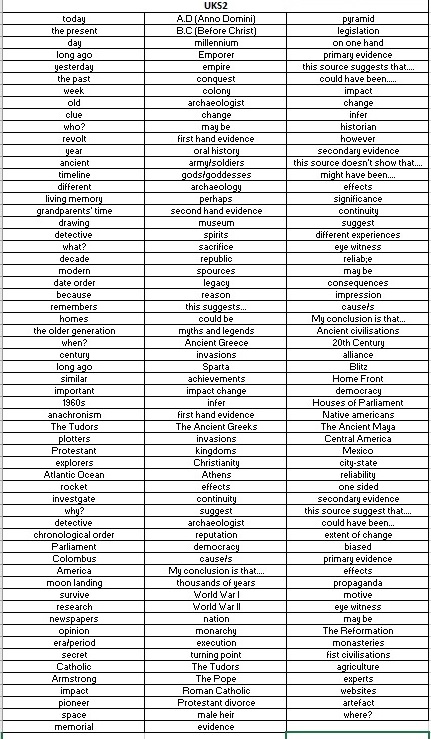
Assessment
Assessment in History is ongoing and based on individual lessons and units. A feedback sheet is completed at the end of a lesson or unit and these are used to assess progress against the National Curriculum objectives.
